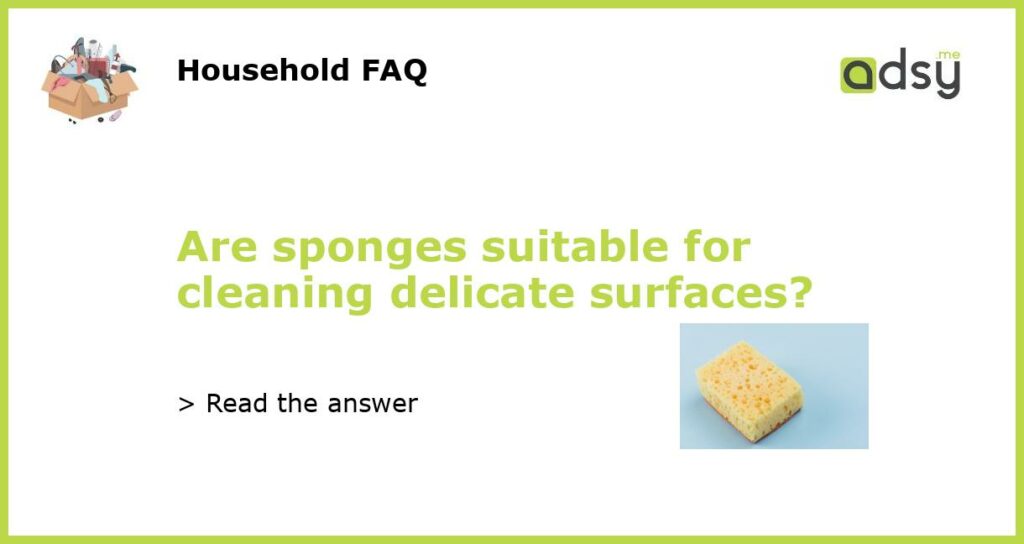Introduction
Sponges are a common and versatile tool for cleaning a variety of surfaces. However, when it comes to delicate surfaces such as fine china, glassware, or electronic devices, caution must be exercised. While sponges may be suitable for some delicate surfaces, there are certain factors to consider before using them. This article explores the suitability of sponges for cleaning delicate surfaces and offers alternative options for gentle cleaning.
Types of Sponges
Before determining whether sponges are suitable for delicate surfaces, it is important to understand the different types of sponges available. There are two main types: natural sponges and synthetic sponges. Natural sponges, as the name suggests, are harvested from the ocean. They are porous, soft, and highly absorbent. Synthetic sponges, on the other hand, are made from man-made materials such as cellulose or polyurethane foam. They are also porous and absorbent, but they tend to be more durable than natural sponges.
Considerations for Delicate Surfaces
When it comes to delicate surfaces, several factors need to be taken into consideration before using a sponge for cleaning:
- Abrasiveness: Sponges can vary in their abrasiveness, and the level of abrasiveness can damage delicate surfaces. Natural sponges, especially those with rougher textures, can scratch or mar fragile surfaces. Synthetic sponges can also be abrasive, depending on their composition.
- Absorbency: Sponges are designed to absorb liquids, and this can be problematic for delicate surfaces. Excess moisture can cause damage to wood, electronic components, or sensitive fabrics. It is important to control the amount of moisture transferred to the surface while cleaning.
- Potential for Residue: Some sponges, particularly those made with low-quality materials, may leave behind residue or lint on delicate surfaces. This can be unsightly or difficult to remove, especially on glossy or smooth surfaces.
Alternative Options for Delicate Surface Cleaning
If sponges are not suitable for cleaning delicate surfaces, what are the alternative options? Here are a few alternatives to consider:
- Microfiber Cloths: Microfiber cloths are a gentler option for cleaning delicate surfaces. They are soft, non-abrasive, and highly absorbent. They are also effective at capturing dust and dirt without leaving lint or residue behind.
- Soft Brushes: For surfaces that require a more precise cleaning approach, such as intricate carvings or electronics, soft brushes can be used. Brushes with soft bristles allow for delicate cleaning without the risk of scratching or damaging the surface.
- Cleaning Sprays: When using cleaning sprays, it is important to choose a gentle formula that is specifically designed for delicate surfaces. These sprays are usually non-abrasive and leave no residue behind.
Conclusion
While sponges can be suitable for cleaning some delicate surfaces, they may not always be the best choice. The abrasiveness, absorbency, and potential for residue need to be taken into account. When in doubt or dealing with particularly fragile surfaces, it is advisable to explore alternative options such as microfiber cloths or soft brushes. Ultimately, the key is to prioritize gentle cleaning methods that minimize the risk of damage.






